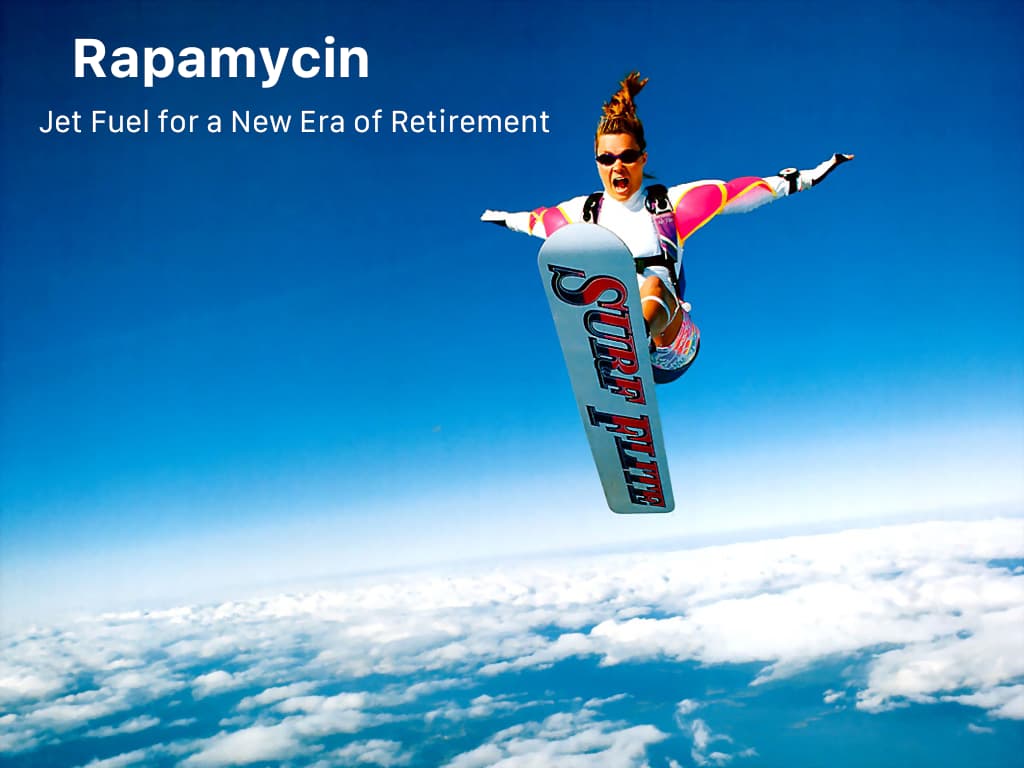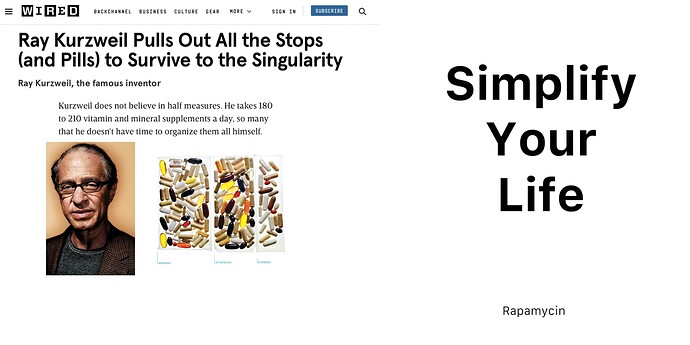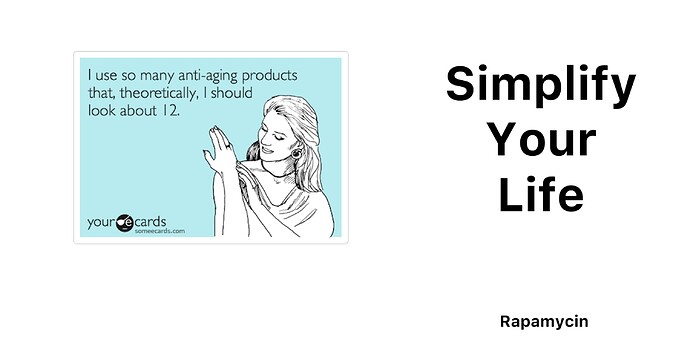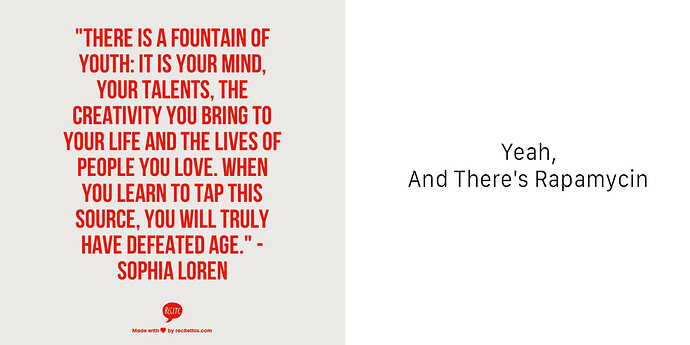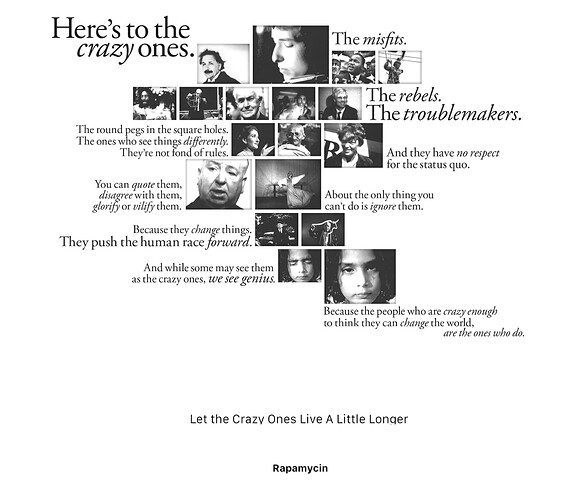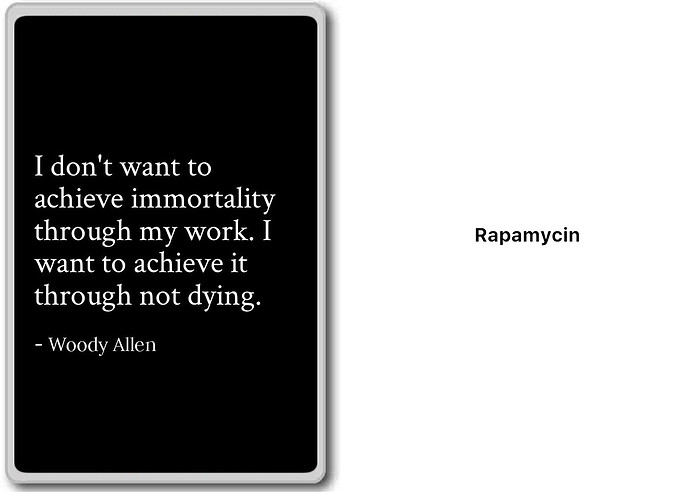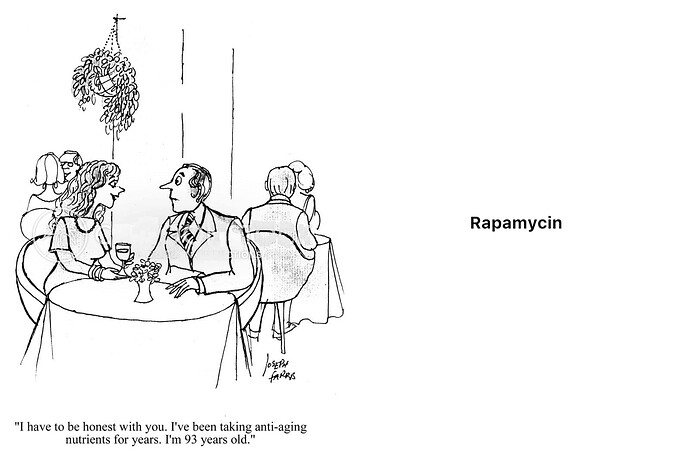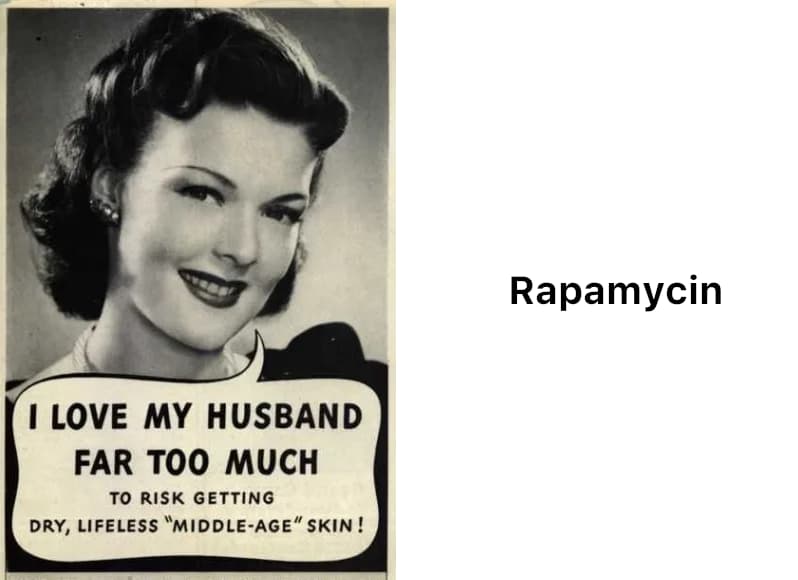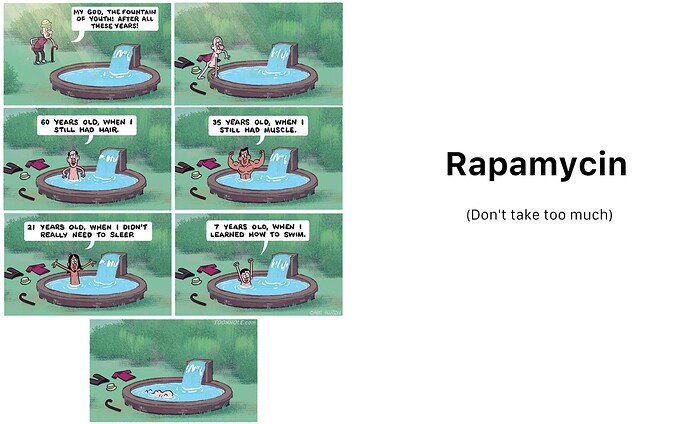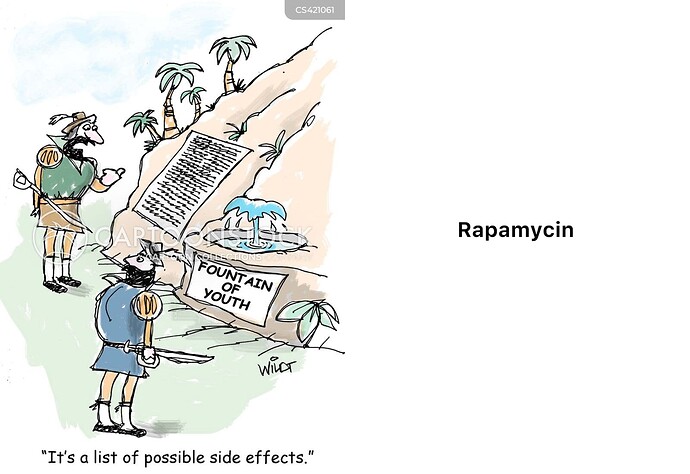
I love these!
On a serious note, I do sometimes worry a bit about rapamycin getting too “popular” in popular culture before it gains mainstream medical acceptance through studies. I’d hate for it to fall into the category of Joe Rogan broscience. It could make it even harder for doctors to take it seriously.
There are perhaps 10,000 people in the entire world taking rapamycin right now, so I think the fear of it becoming too popular or overhyped is probably premature. And I think a little “tongue in cheek” meme humor on rapamycin is long overdue, given its 20+ years of research and past decade of longevity notoriety…
Most people here found about about rapamycin because someone (e.g. Peter Attia, Matt Kaeberlein, etc.) “promoted” and talked about rapamycin and its benefits. So while we now know about rapamycin and you are right that since we know about it already we won’t benefit further from other people learning about it, I take the view that the more people who benefit from rapamycin the better off society would be.
But you do bring up an interesting point about “Young Blood”, and I know you said earlier that you were a customer of Ambrosia the young blood company that basically got shut down by the FDA a few years ago. There was a lot of press coverage on the “young blood” clinics that started offering the blood transfusion service. And the whole area of “young blood” is an interesting comparison point because the research on it generally seems very positive and encouraging; and if people had to bet they would probably bet that it works at reducing biological age of older people. And the history of research on heterchronic parabiosis goes back many decades… so “young blood” transfusion as a research area has been around for a long time. Still, the FDA issued a warning to Ambrosia when it started getting a lot of press, and the company shut itself down (though I think the founder later started another company doing the same thing, lower profile, but I’m not sure where that went).
I did find this follow-on story:
So yes, the FDA definitely had a negative impact on the young blood market / business and availability. And this is despite the research looking quite promising in this area (though people rightfully raise concerns about the optics of older wealthier people taking the blood of young people to live longer… I’m not sure if that played into the FDA’s decision making).
Looking at the FDA warnings on young blood transfusions, here are the specific warnings and discussions on it:
Responding to the rising popularity of “anti-aging” plasma infusions from young adults, the U.S. Food and Drug Administration (FDA) has warned consumers that the practice has not been approved by the regulatory agency and is potentially unsafe, given the residual risks of infection and other complications.
https://ashpublications.org/ashclinicalnews/news/4418/FDA-Warns-Consumers-About-Young-Blood-Plasma
Looking at the specific FDA warning letter, here is what it says:
Today, we’re alerting consumers and health care providers that treatments using plasma from young donors have not gone through the rigorous testing that the FDA normally requires in order to confirm the therapeutic benefit of a product and to ensure its safety. As a result, the reported uses of these products should not be assumed to be safe or effective. We strongly discourage consumers from pursing this therapy outside of clinical trials under appropriate institutional review board and regulatory oversight.
Plasma is the liquid portion of the blood. It contains proteins that help clot blood and can be used for the management of bleeding and clotting abnormalities. The benefits of plasma have long been recognized, especially in trauma settings or in patients whose blood is unable to clot due to medications or certain illnesses. The FDA-recognized Circular of Information for the Use of Human Blood and Blood Components, published by AABB, lists recognized indications for which the administration of plasma is safe and effective; these are included in the FDA’s safety communication. For those patients receiving a plasma product for a recognized use, the benefits of treatment have been determined by the agency to outweigh its risks. But even under such recognized uses, plasma administration is not without risks. The more common risks are allergic reactions and transfusion associated circulatory overload and less common risks include transfusion related acute lung injury or transfusion associated circulatory overload and infectious disease transmission.
Our concerns regarding treatments using plasma from young donors are heightened by the fact that there is no compelling clinical evidence on its efficacy, nor is there information on appropriate dosing for treatment of the conditions for which these products are being advertised. Plasma is not FDA-recognized or approved to treat conditions such as normal aging or memory loss, or other diseases like Alzheimer’s or Parkinson’s disease. Moreover, reports we’re seeing indicate that the dosing of these infusions can involve administration of large volumes of plasma that can be associated with significant risks including infectious, allergic, respiratory and cardiovascular risks, among others.
After reviewing all this again - it does seem relevant to the discussion of rapamycin. Rapamycin is much more researched than young blood transfusions have ever been though. And rapamycin is an FDA approved drug already (though I guess you could argue that blood transfusions are also already highly available and have a long history).
But I do agree that this is a risk. Rapamycin, as a category of longevity therapeutics, does not want to have its popularity suddenly become so great that it attracts FDA attention and potential punishment/warnings.
Publicity around rapamycin could also drive up prices.
I don’t think a humorous meme would likely have much effect in the grand scheme of things (Tim Ferriss has been talking about rapamycin for years and has millions of followers), but I can see the rationale for concern.
Yes - I’m now tending to agree with you on this. We’ll stick to the science and issues of implementation going forward. This will be the only humor-focused thread ![]()
What doctors think? That’s rich.
Haha, well it would be sad to conclude that would be the reason women are taking Rapamycin.
(That is besides the fact I haven’t noticed any changes in skin at all ![]() )
)
What about remaining completely independent and traveling the world on your own until you’re well into your 80s/90s?
I tend to agree with some of Mike’s suggestions. I’ve also seen groups being closed down where people gathered that were using medication/drugs/peptides they ordered themselves - as a result of a group member experiencing a serious adverse event and warning authorities. But these were Discord/Facebook groups.
Based on a ridiculously sexist 1938 ad for Palmolive soap… its hard to believe what passed for advertising back in those days. Included here purely for humor purposes.

